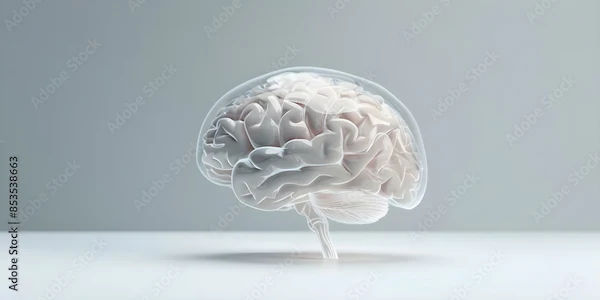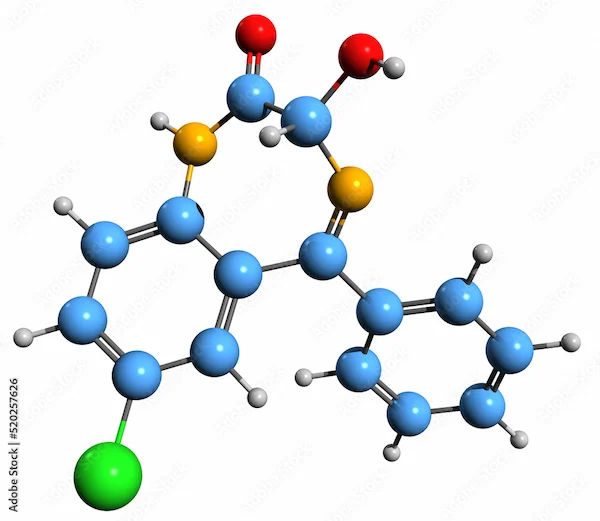Frontal Lobe Functions And Issues: Understanding The Brain's Control Center
Explore the essential functions of the frontal lobe and the issues that can arise from its damage or dysfunction. Learn about its role in decision-making, behavior, and cognitive skills, and how it impacts daily life.

Written by Dr.Sonia Bhatt
Last updated on 3rd Jul, 2025

Introduction
The human brain is an incredibly complex organ responsible for controlling all the body's functions, thoughts, emotions, and behaviours. Among its various regions, the frontal lobe stands out as one of the most critical for our daily functioning. Located at the front of the brain, right behind the forehead, the frontal lobe is involved in a wide range of essential tasks that affect our ability to think, plan, make decisions, control movements, and regulate emotions.
In this article, we will explore the key functions of the frontal lobe, the issues that can arise when it is damaged or impaired, and what steps you can take to maintain your frontal lobe health.
What is the Frontal Lobe?
The brain is divided into four main lobes: the frontal, parietal, temporal, and occipital lobes. The frontal lobe is the largest of these and is located at the front of the brain. It is responsible for a variety of higher cognitive functions, which are essential for complex thinking and behaviour. The frontal lobe is also home to the motor cortex, which controls voluntary muscle movements.
The frontal lobe is divided into several regions, each with specific functions:
The Prefrontal Cortex: This area is involved in higher-level functions like decision-making, problem-solving, judgment, planning, and personality traits.
The Motor Cortex: Located just behind the prefrontal cortex, this area is responsible for controlling voluntary movements, such as walking, speaking, and other motor functions.
Broca’s Area: Found in the left hemisphere of the frontal lobe, Broca's area is essential for speech production. It plays a pivotal role in both the motor aspects of speaking and the formation of grammatically correct language.
Key Functions of the Frontal Lobe
The frontal lobe is one of the most important regions of the brain, responsible for a wide range of functions that are crucial for daily life. It helps us think, move, communicate, and interact with others. Here are some of the key functions it controls:
Reasoning and Decision-Making: The frontal lobe is at the heart of our ability to reason, problem-solve, and make decisions. It allows us to think through situations, weigh options, and make choices based on logic, experience, and emotions. This function is essential for everything from planning daily tasks to setting and achieving long-term goals.
Motor Control: The motor cortex, which is located in the frontal lobe, is responsible for controlling voluntary muscle movements. Whether it’s walking, writing, or playing an instrument, the frontal lobe sends signals to our muscles to make these movements happen. It also helps us fine-tune motor skills like typing or performing tasks that require hand-eye coordination.
Speech and Language: Broca’s area, located in the left frontal lobe, is essential for speech production. It enables us to form clear, coherent sentences and express our thoughts verbally. When this area is damaged, it can lead to speech difficulties like Broca’s aphasia, where people have trouble speaking, but can still understand language.
Emotional Regulation: The frontal lobe plays a crucial role in managing our emotions. It helps us regulate our mood, control impulsive behaviour, and respond appropriately to social cues. This emotional control is important for maintaining stable relationships, managing stress, and making thoughtful decisions in emotionally charged situations.
Memory and Attention: The frontal lobe helps with short-term memory and the ability to focus. It allows us to keep track of important details, plan ahead, and switch attention between tasks. This function is vital for multitasking and staying organised, especially in a fast-paced environment.
Social Cognition: Understanding social norms and interacting with others in an appropriate way is largely influenced by the frontal lobe. It helps us empathise with others, recognise social cues (like body language or tone of voice), and navigate complex social interactions. This ability is key for building strong relationships and succeeding in both personal and professional settings.
Issues Related to the Frontal Lobe
Any condition that impacts brain tissue can also affect the frontal lobe. Some of these conditions and their issues include:
Traumatic Brain Injury (TBI): TBI can result from accidents, falls, or violent impacts to the head. Damage to the frontal lobe in such cases can lead to changes in personality, impaired judgment, and difficulties with motor skills. Individuals may also experience problems with attention, memory, and problem-solving.
Stroke: A stroke occurs when the blood supply to the brain is interrupted, leading to brain cell damage. A stroke affecting the frontal lobe can cause cognitive impairments, emotional disturbances, and physical symptoms like muscle weakness or paralysis on one side of the body.
Neurodegenerative Diseases: Conditions like Alzheimer's disease and frontotemporal dementia can cause the frontal lobe to degenerate over time. As this happens, people may experience symptoms such as memory loss, confusion, trouble with language, and changes in behaviour.
Infections and Tumors: Infections such as encephalitis or brain tumours can damage the frontal lobe. Symptoms may include seizures, speech difficulties, personality changes, and emotional instability. Early diagnosis and treatment are crucial for managing these conditions effectively.
Developmental Disorders: Disorders like Attention Deficit Hyperactivity Disorder (ADHD) and Autism Spectrum Disorder (ASD) often involve abnormalities in the frontal lobe. Individuals with these conditions may struggle with attention, impulse control, and social interactions.
Symptoms of Frontal Lobe Damage
Frontal lobe damage can affect behaviour, cognition, emotions, and physical abilities. The symptoms depend on the severity and location of the damage, but here are some common ones:
Behavioural Changes: Increased impulsivity, irritability, and inappropriate social behaviour. There may also be apathy or lack of motivation.
Cognitive Impairments: Difficulty with problem-solving, decision-making, and memory. People may struggle to organise thoughts or concentrate.
Emotional Disturbances: Mood swings, depression, anxiety, and trouble regulating emotions. Loss of empathy may also occur.
Motor and Physical Symptoms: Issues with coordination, muscle weakness, and difficulty with fine motor skills like writing or typing. In severe cases, paralysis may occur.
Speech and Language Difficulties: Trouble forming words or constructing sentences, known as aphasia, due to damage in Broca’s area.
Social Interaction Issues: Difficulty understanding social cues, inappropriate behaviour, and challenges with empathy and emotional responses.
Inability to Plan or Initiate Actions: A lack of initiative or trouble starting tasks, known as avolition, can occur.
Diagnosis of Frontal Lobe Issues
Diagnosing frontal lobe issues often involves a combination of clinical evaluations, neuroimaging (such as MRI or CT scans), and neuropsychological assessments. Here are the primary methods used for diagnosis:
Clinical Evaluation: A detailed medical history and physical exam to assess symptoms, medical history, and recent injuries.
Neuroimaging Techniques:
MRI: Detailed images of brain structure to identify abnormalities like tumours and lesions.
CT Scan: Cross-sectional images to detect bleeding, fractures, or acute injuries.
PET Scan: Assesses brain function by measuring blood flow, glucose metabolism, and oxygen use.
EEG: Measures electrical activity in the brain to detect abnormal patterns and seizures.
Neuropsychological Assessment: Tests to evaluate cognitive functions such as memory, attention, problem-solving, language, and executive functions.
Laboratory Tests: Blood tests to rule out infections, metabolic disorders, or other conditions affecting brain function.
Treatment of Frontal Lobe Issues
The treatment approach for frontal lobe issues depends on the underlying cause, severity of symptoms, and individual patient needs. Here are some common treatment strategies:
Medical Intervention: Treatment options may include medications to manage symptoms, surgical procedures for tumours, or rehabilitation programs for TBI. Medications such as antidepressants, antipsychotics, and mood stabilisers can help regulate emotional and behavioural symptoms.
Therapy: Cognitive-behavioral therapy (CBT), occupational therapy, and speech therapy can be beneficial for addressing behavioural, cognitive, and speech-related issues. These therapies focus on improving coping skills, enhancing cognitive function, and developing effective communication strategies.
Lifestyle Modifications: Implementing healthy lifestyle changes, such as regular exercise, a balanced diet, and stress management techniques, can contribute to overall well-being and improve cognitive function.
Prognosis and Long-Term Management
The prognosis for individuals with frontal lobe issues varies based on the underlying cause, severity of the damage, and the effectiveness of the treatment. While some patients may recover fully, others may experience long-term cognitive, emotional, or physical impairments. Continuous monitoring and adjustment of treatment plans are essential for managing symptoms and improving the quality of life.
Conclusion
The frontal lobe is a crucial part of the brain that helps shape our behaviour, personality, and thinking. Understanding how it works and recognising the problems that can occur when it’s damaged is key to supporting brain health and providing the right care for those affected. With the right combination of medical treatment, therapy, and lifestyle changes, people dealing with frontal lobe issues can still live fulfilling and meaningful lives.
Consult Top Neurologists
Consult Top Neurologists

Dr. Abhinav Gupta
Neurologist
18 Years • MBBS, MD (GENERAL MEDICINE), DM (NEUROLOGY)
Ghaziabad
Bhava Neurocenter, Ghaziabad

Dr Rajashekar Mummadi
Neurologist
2 Years • MBBS, DNB General Medicine, DRNB Neurology
Hyderabad
Dr Ram's Neuro Clinic, Hyderabad
Dr. Annakula Ramu
Neurologist
7 Years • MBBS, MD General Medicine, DM Neurology
Jagtial
Sairam Neuro and Children Hospital, Jagtial

Dr. Uddalak Chakraborty
Neurologist
8 Years • MBBS, MD(GENL.MED.),DM(NEUROLOGY)
Kolkata
MCR SUPER SPECIALITY POLY CLINIC & PATHOLOGY, Kolkata

Dr Chandu Samba Siva Rao
Neurologist
7 Years • MBBS, MD GENERAL MEDICINE, DM NEUROLOGY
Vijayawada
Chandu Neuro Center, Vijayawada
